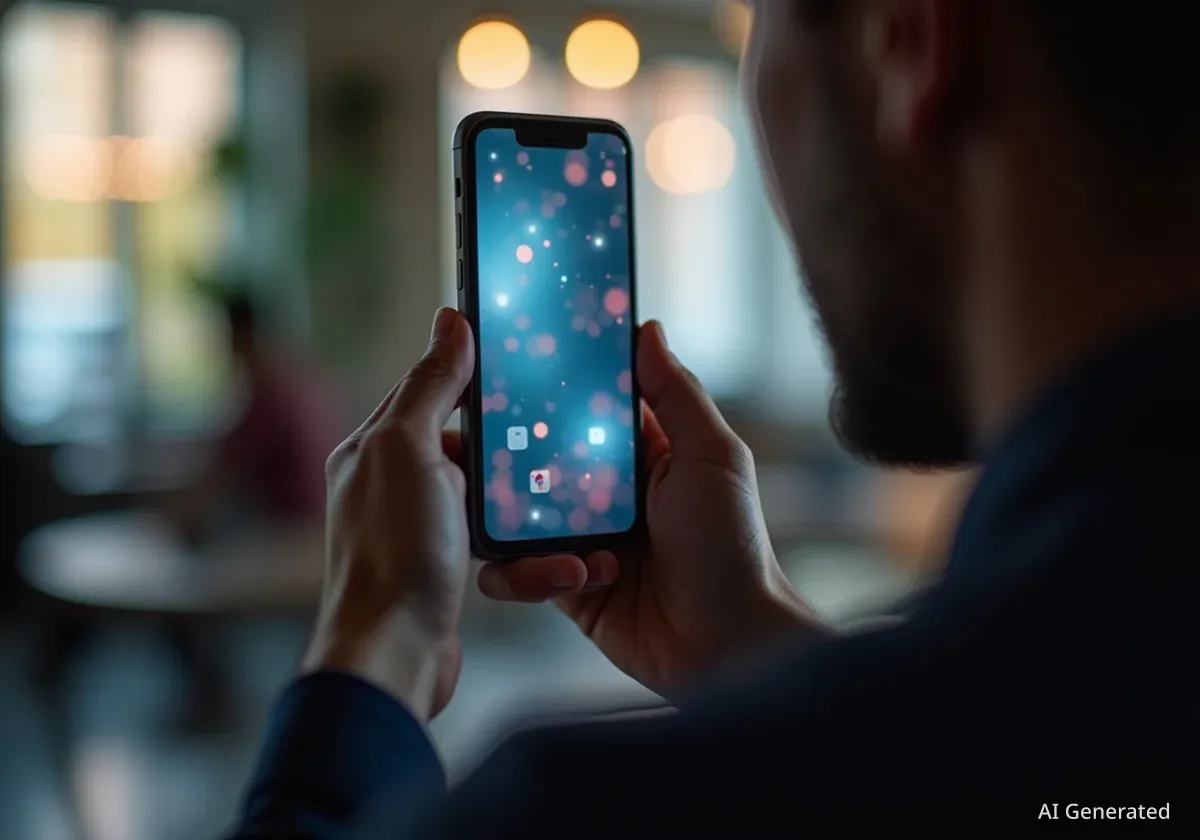Meta has introduced new artificial intelligence features for its Facebook Dating platform, aiming to address a common user complaint known as "swipe fatigue." The new tools include a conversational AI assistant for creating specific searches and an automated matching feature, representing the latest effort by a major platform to refine the online dating experience through technology.
Key Takeaways
- Facebook Dating has launched an AI-powered "Dating Assistant" to allow users to create highly specific searches for potential matches.
- The platform also introduced a surprise match feature based on a personalized algorithm to reduce manual searching.
- Experts are divided on whether these AI tools will attract Gen Z users, who often prioritize authenticity over AI-polished profiles.
- Competitors like Tinder, Hinge, and Bumble have already integrated various AI features for photo selection, prompt improvement, and conversation starters.
New AI Tools Aim to Reduce Endless Swiping
Meta is actively trying to solve one of the biggest problems in modern online dating: the burnout that comes from endlessly swiping through profiles. A recent Forbes Health survey highlighted the scale of the issue, finding that the average dating app user spends more than 50 minutes per day just swiping.
To counter this, Facebook Dating has rolled out two new features. The first is an AI chatbot called the "Dating Assistant." According to Facebook Dating product manager Neha Kumar, this tool helps users customize their searches with detailed, conversational prompts.
For example, a user can ask the assistant to "Find me a Brooklyn girl who loves live music, cats, and museums." This moves beyond standard filters like age or location to focus on interests and lifestyle, potentially leading to more compatible connections.
The second feature is a surprise match system. This tool uses a personalized algorithm to automatically present a user with a potential match, removing the need for them to initiate a search or swipe at all.
The Problem of Swipe Fatigue
"Swipe fatigue" describes the mental and emotional exhaustion users experience from the repetitive and often unrewarding process of browsing countless profiles on dating apps. Psychologists suggest it stems from an "endless, addictive loop of browsing options without meaningful follow-through," leading to feelings of frustration and disillusionment with online dating.
Competition in the AI Dating Space
Meta's move is part of a broader industry trend where dating platforms are racing to integrate AI. The goal is to make the matching process more efficient and personalized. Hinge's CEO has predicted that "mass swiping" could become obsolete within three to five years as AI-driven searches become the norm.
Other major players have already deployed their own AI tools:
- Tinder uses an AI photo selector to help users choose their most effective profile pictures.
- Hinge offers an AI feature that can help users improve their written responses to profile prompts.
- Bumble has similar functions and also provides an AI-powered icebreaker feature to help users start conversations.
Neha Kumar noted that Facebook Dating's new search function offers a more detailed level of customization than what is currently available on competing apps. Both of Meta's new AI features are being offered for free to all users on the platform.
Expert Skepticism and the Gen Z Question
While Meta is targeting young adults, experts express skepticism about whether these new AI features will resonate with the Gen Z demographic. Matchmaker and relationship expert Amber Lee described the initiative as potentially "too little, too late."
"Gen Z already associates Facebook as a platform for an older demographic, so this feels more like a PR stunt than something groundbreaking in the dating space," Lee stated.
Lee also pointed out that Gen Z's slower adoption of AI in dating apps is tied to a desire for genuine connection. She warned that AI-polished profiles and conversations could backfire.
"This can potentially backfire as users are looking for authentic connections," she explained. "Gen Z is likely to be turned off by the inauthentic nature of AI-polished profiles. These singles are seeking genuine connection, not one [run] by AI."
Platform Growth Among Young Adults
Despite concerns about its appeal to younger users, Neha Kumar reported that Facebook Dating has seen a 10% year-over-year increase in matches among young adults. The company did not disclose the total number of users on the platform.
A Shift Toward Deeper Personalization
Not all experts are critical of Meta's approach. Some see the new features as a positive step toward a more nuanced form of online matchmaking. Jess Carpino, a former sociologist who worked for both Tinder and Bumble, called the move intuitive.
"It’s trying to understand users’ needs in a more granular way," Carpino said. "Custom search points to a shift from demographic-driven filters to a more robust system for zeroing in on personal preferences."
However, other experts argue that the core problem isn't the search process itself, but the difficulty of transitioning from online conversations to real-life interactions. Avigail Lev, a psychologist and dating coach, believes users need different kinds of tools.
According to Lev, singles want features that "help them bring relationships into real life more quickly," such as integrations for local events or group meetups. She concluded that swipe fatigue is not about the physical action but the lack of meaningful results.





